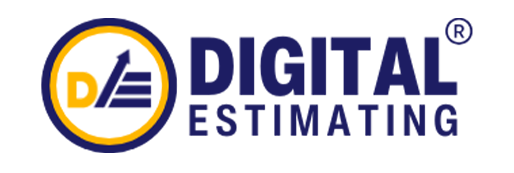Whether you’re launching a new construction company or looking to grow your existing operation, a solid business plan is crucial. Think of it as your blueprint for success—it defines your goals, outlines your strategies, and helps you stay on track. A well-crafted business plan can also be the ticket to securing funding, attracting partners, and guiding your decision-making as you scale your business.
Executive Summary
Overview of Your Business
Start strong by introducing your construction company. What type of projects do you specialize in? Are they residential, commercial, renovations, or custom builds? Briefly describe your core services and what sets you apart from the competition.
Mission Statement and Goals
Your mission statement should capture your company’s purpose and values. Are you committed to sustainable building practices? Do you focus on delivering projects on time and under budget? Outline your short-term and long-term goals as well.
Summary of Financial Projections
Give a snapshot of your financial outlook, including expected revenue, profitability, and growth milestones. You’ll dive into detailed numbers later in the plan, but this is where you show the big picture.
Company Description
Legal Structure and Ownership
Clarify how your business is organized. Are you a sole proprietor, a partnership, a limited liability company (LLC), or a corporation? List the owners and their percentage of ownership.
History and Background
Share the story behind your company. When was it founded? What inspired you to start it? Even a short history helps humanize your brand and build credibility.
Services Offered and Target Market
Define exactly what services you provide—general contracting, specialty subcontracting, design-build services, etc.—and who you serve. Residential homeowners? Commercial developers? Government agencies?
Market Analysis
Industry Overview and Trends
Show that you understand the bigger picture. Include trends affecting the construction industry, such as green building, modular construction, or post-pandemic recovery. A few stats can strengthen your case.
Target Market Analysis
Describe your ideal customers in detail. Where are they located? What do they need? What are their biggest pain points? The more specific, the better.
Competitive Analysis
Identify your main competitors and explain what differentiates your business. Maybe you offer faster turnaround times, use innovative materials, or provide better customer service. Know your edge and highlight it.
Organization and Management
Organizational Structure
Create a simple organizational chart or outline that shows who’s responsible for what. If you’re a small team, that’s fine—just clarify roles and responsibilities.
Management Team and Key Personnel
Introduce your leadership team. Include relevant experience, skills, and accomplishments. If you’re solo for now, emphasize your background and any strategic advisors you rely on.
Advisory Board (if applicable)
If you have mentors, consultants, or an advisory board guiding you, mention them. Their expertise can add credibility to your plan, especially when seeking funding.
Service Line
Detailed Description of Services Offered
Break down your offerings clearly. List each service and describe what it involves—new home construction, kitchen remodeling, tenant improvements, etc.
Pricing Strategy
Explain how you price your services. Are you positioning yourself as a premium service provider or competing on affordability? Be transparent about your approach.
Project Management Approach
Talk about how you manage projects from start to finish. Mention any project management systems, scheduling software, or quality assurance processes you use to deliver consistent results.
Marketing and Sales Strategy
Marketing Plan and Budget
Outline your plan for getting noticed. Will you invest in SEO, paid ads, direct mail, networking events? Detail where you’ll focus your efforts and allocate your marketing budget accordingly.
Sales Strategy and Tactics
Describe how you plan to close deals. Will you use free consultations, site visits, or proposals with detailed estimates? Highlight anything that sets your sales process apart.
Customer Acquisition and Retention
Getting new clients is important—but keeping them is even better. Talk about your strategies for building strong client relationships and encouraging repeat business and referrals.
Financial Projections
Start-up Costs and Funding Sources
List all your initial expenses, from equipment purchases to marketing and legal fees. Identify where your funding will come from—personal savings, loans, investors, or grants.
Income Statement Projections
Forecast your revenue, cost of goods sold (COGS), gross profit, and net profit over the next three to five years. Provide both best-case and conservative scenarios if possible.
Balance Sheet Projections
Outline what you expect your assets, liabilities, and equity to look like over time. This gives a clearer picture of your company’s financial health.
Cash Flow Projections
Cash is king, especially in construction. Show how cash will flow into and out of your business each month. This helps identify potential shortfalls before they become problems.
Break-Even Analysis
Calculate the point at which your revenue covers all your expenses. This is critical for understanding when your business will start turning a real profit.
Appendix
Supporting Documents
Include any extra information that backs up your plan: resumes of key team members, market research data, equipment lists, supplier agreements, and subcontractor contacts.
Permits and Licenses
Attach copies of relevant licenses, permits, or certifications. This shows you’re ready to hit the ground running legally and professionally.
Resumes of Key Personnel
If you have team members with impressive backgrounds, showcasing their resumes here can strengthen your plan.
Conclusion
A construction business plan isn’t just a formality—it’s a foundational tool that can drive real success. By clearly defining your goals, market, services, and financial strategies, you set yourself up for sustainable growth. Plus, if you ever seek outside funding or partnerships, having a polished business plan ready to go will be a major advantage.

